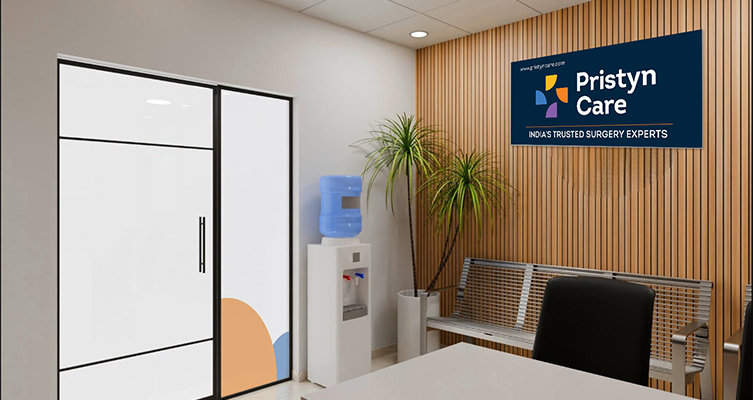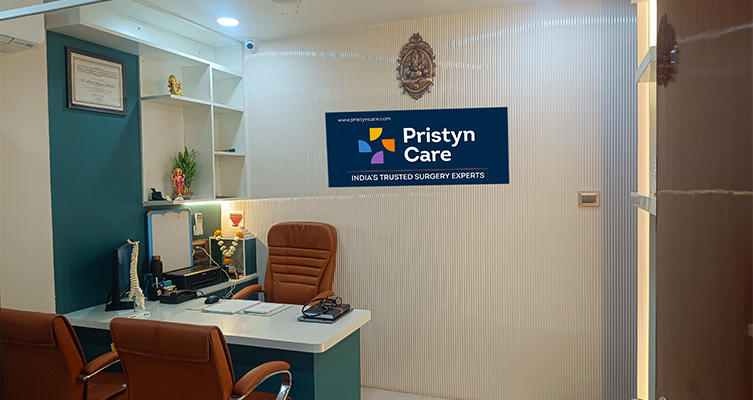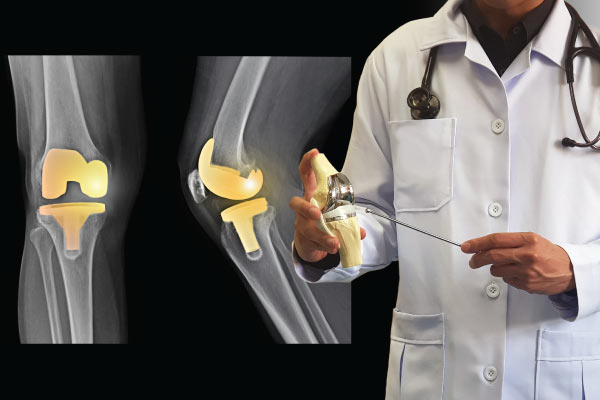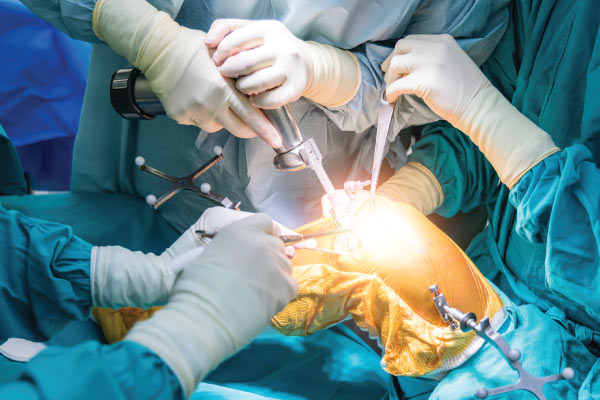Providing the best care and assistance for total knee replacement surgery in Pune
Knee pain is a common but very painful and complicated problem that most adults face especially if they are athletes or have a genetic problem like arthritis. When it comes to orthopedic surgeries, every patient has unique needs and goals. That is why, our orthopedic surgeons prioritise is to provide the best individual care for each patient, keeping in mind their needs and expectations from the surgery. Prior to the surgery, a thorough diagnosis and examination will be performed to address the patient’s condition, extent of pain, mobility, and other associated concerns.
If you are suffering from severe knee pain that affects your normal life, it may be time to consider having a knee replacement surgery. Our board certified orthopedic surgeons specializes in total knee replacement surgery in Pune and have performed the procedure successfully on several patients, who are satisfied and happy with the outcomes. To undergo a successful knee replacement surgery with a rapid recovery, book an appointment with us today!
Expert orthopedic doctors for TKR surgery in Pune
Minimally invasive knee replacement surgery is an innovative technique that uses small incisions and specially-designed surgical instruments to perform both simple and complex procedures making a large incision. Smaller incisions will enable the surgeon to preserve the healthy tissue and causes lesser trauma to the nearby tissue, muscles and tendons. As a result, the patient will come across fewer complications during the recovery and have a fast and more comfortable recovery.
Suffering from degenerative knee disease? Our knee specialists are here to help
Degenerative knee joint disease, also known as OA (osteoarthritis), is the most common type of knee disease. Degenerative joint disease commonly occurs in the knee joint, hip joint, hands, and the spine.
Degenerative joint disease typically occurs with aging when the cartilage cushioning the bones breaks down and the bone surfaces are exposed and rub-down together, causing friction. This friction may cause general irritation and the joint region may become inflamed and painful, resulting in a loss of motion in the knee joint. Other complications of degenerative joint disease may include development of bone spurs around the affected knee or weakness and stiffness in the surrounding ligaments and muscles.
If you or your loved one is suffering from knee osteoarthritis or degenerative joint disease in the knee, you may know how severely this disease can affect an individual’s life. The loss of joint movement and function and knee pain can highly impact a person’s quality of life and might keep them from doing the things they enjoy. Our best knee doctor in Pune offers the most suitable and promising treatment options for chronic joint pain and other conditions, including joint replacement and reconstruction surgery. Your knee specialist will provide you with all the necessary information about your condition and available treatment options and will answer questions you may have to help you make a well-informed decision.
Common types of Knee Replacement
The 4 main types of knee replacement are-
- Total knee replacement
- Unicompartmental or partial knee replacement
- Patellofemoral arthroplasty (kneecap replacement)
- Revision (complex) knee replacement
There are several kinds of knee replacement surgeries and different surgical methods for performing the procedure. Your orthopaedic surgeon will help you to choose the best surgery for you, taking into account the condition of your knee, your general health, age and lifestyle.
Types of Knee Replacement Implants
There are different types of knee implants. The main difference between them is whether the implant replaces the entire knee joint or only some component of it. The most suitable type of knee implant suitable for will depend on various factors.
Artificial knee implants basically consist of the following parts-
- A metal cap placed on the end of the thigh bone, after removal of the damaged joint surfaces.
- A platform also called the tibial (lower leg) component (usually consisting of a metal alloy) that replaces the top surface of the lower leg.
- A plastic spacer made up of polyethylene between the upper leg and lower leg component that replaces the knee joint space and meniscus and helps the knee implant move.
There are several different options for knee joint implants available Your surgeon will select the implant during your preoperative visits. The type of knee implant used for your replacement surgery will depend on various factors, such as your age, weight, activity level and severity of arthritis (if present).
List of Knee Replacement Doctors in Pune
| 1 | Dr. Ashish M Arbat | 2000031782 | 4.5 | 25 + Years | 1671-75, Ganeshkhind Rd, near Hotel Pride, Narveer Tanaji Wadi, Shivajinagar, Pune, Maharashtra 411016 | Book Appointment |
| 2 | Dr. Kunal Ramesh Bansal | 2009030513 | 4.5 | 16 + Years | -- | Book Appointment |















.svg)









